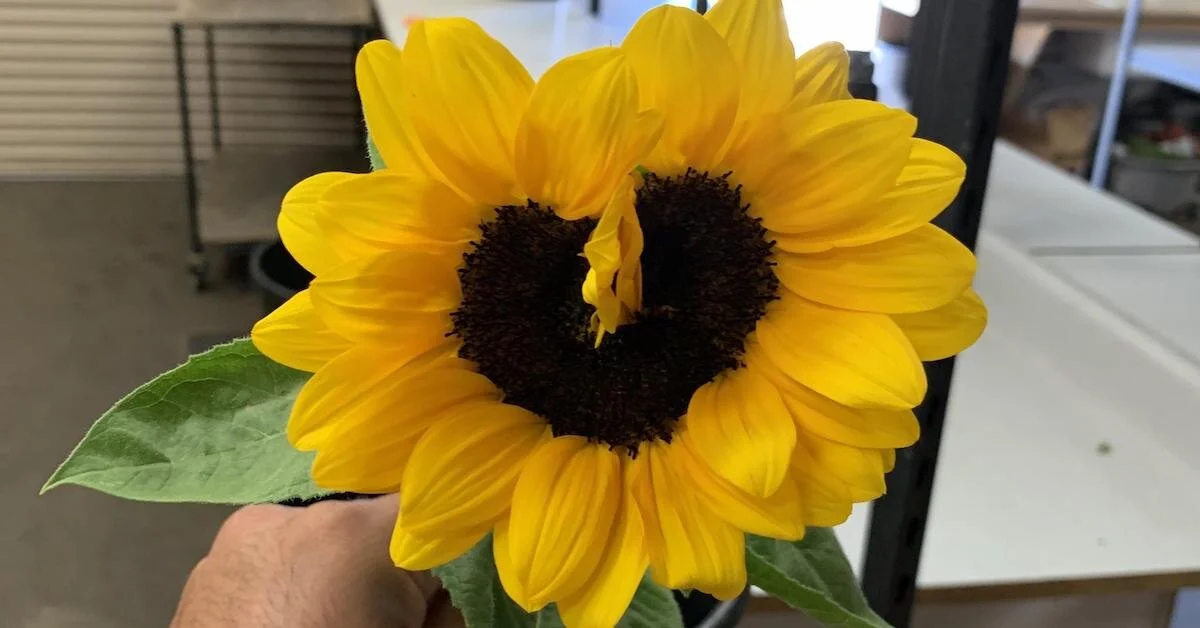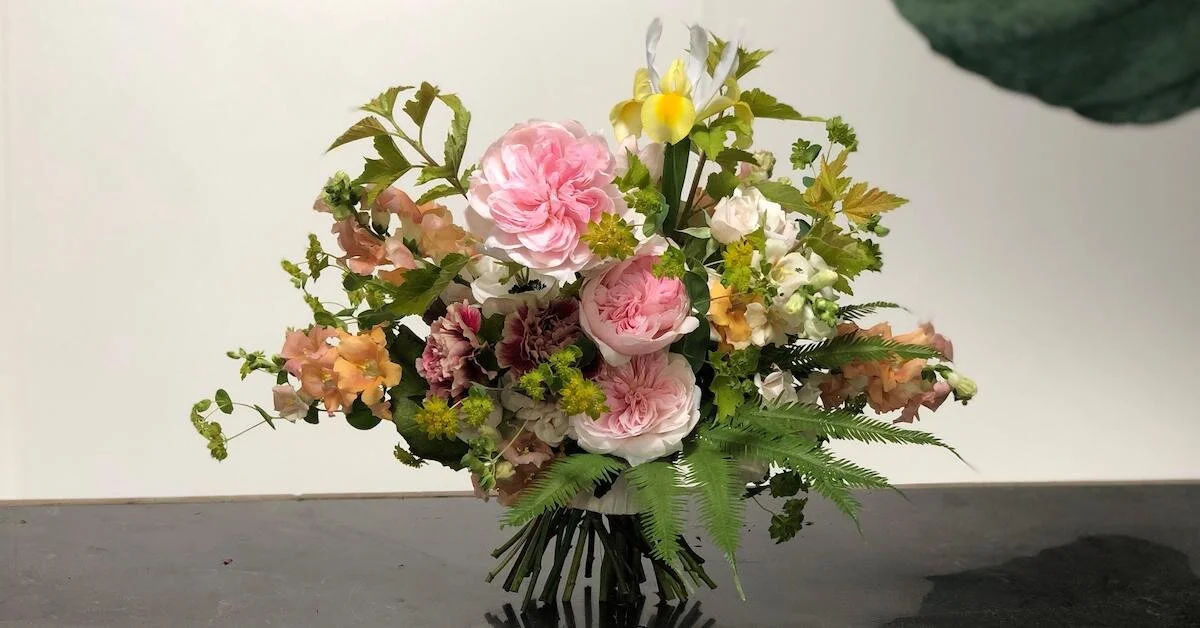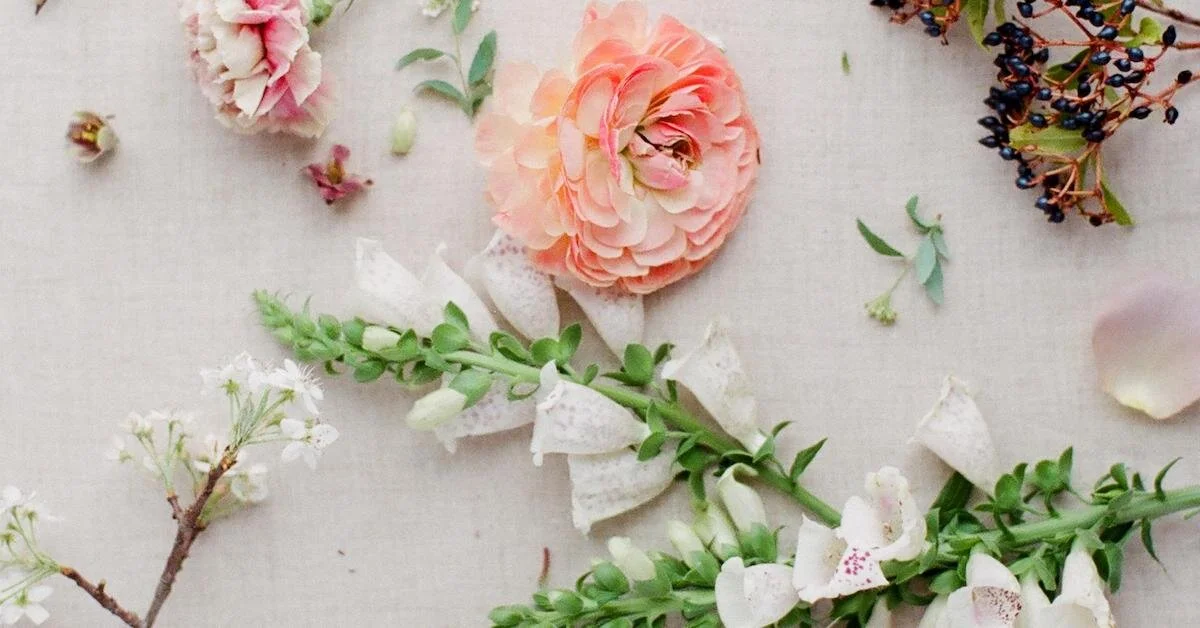Hope for Floral Designers in the Midst of Hardship
Am I doing the right thing? What if I get sick? Am I naive to think that I can make a living doing this? Flowers? How did I end up here again? Sound familiar? Unfortunately, you're not alone.
Recently, due to the coronavirus pandemic, some 26 million Americans filed for unemployment. That's 26 million families that are having to ask themselves those same questions every day, the same words that repeat in my head as I lay my 6-month-old to bed.
I'm finally home after a rough day, a rough week, and a rough month. Home: my happy place, that one place that I can go where my day melts away from me. We all have one of those places. Mine just so happens to be sitting on our big blue couch, but recently it hasn't provided the same feeling of relief at the end of the day.
The stress of running a business during a pandemic, and now what experts are calling an imminent recession, is weighing heavy on my mind. I jokingly tell my wife that every day I get a few new grey hairs in my beard. She always laughs and tells me not to worry—that everything will be okay. I know she's right (don't tell her I said that). I have a hard time letting myself relax when what feels like the weight of the world, my world, is on my shoulders, counting on me to succeed.
The TV is off, and the only noise in the house is the quiet humming of my wife's sewing machine on the dining room table. For days now, she's been there tirelessly trying to mass-produce masks for our family. This is where life has taken us: a global pandemic, social distancing, mass layoffs, closed borders, and entire industries shut down overnight—the list goes on. How can I run a business that's sole purpose is bringing people together, in a time when everyone must be apart?
There is something to be said about how flowers can bring people together, how life's most perfect memories tend to have flowers involved. The first two weeks of the stay-at-home orders felt as if the switch of the flower industry had been turned off. Overnight, weddings and events have been canceled, venues and businesses closing their doors, restaurants only open for take-out. The freeway that runs less than a hundred yards from our shop’s front doors no longer has the typical afternoon commuter mayhem; the streets once filled with miles of bumper-to-bumper red lights are now nearly empty. Never in my life have I seen a Southern California freeway with so few cars. A recession is looming, and I can't help but be reminded of why I became a florist.
I have been in the flower industry for 12 years now. I started right after I graduated in 2008 during the worst recession since the Great Depression. I was 18 and jobless. I had been to every fast food restaurant and wholesale warehouse looking for work. However, I was competing with 50-year-old men with master's degrees for the privilege to flip burgers.
My mother's friend worked at a florist and said the owner was looking for a processor, so I settled for flowers. The work was hard, the hours were long, and the water from the baby's breath buckets made my stomach turn. Before this job, I never put any thought into what it meant to be a florist or what it took to make flower arrangements. Hundreds of hands touch a single flower before it ends up in the final floral arrangement, thousands of miles away from where it was grown. It took me months to learn how to clean and process all the different flowers, but it only took one holiday season to know that this is what I wanted to do.
My first holiday season, Thanksgiving to Mother's day, was the hardest six months of my life. I found myself enjoying the rush of the chaos. Absolute chaos. It was organized, but it was nothing like I had ever experienced before. Right before my eyes, I witnessed incredible women working through the day and night, making beautiful arrangements. No one said a word, yet all knew what needed to be done. It was like they were part of the military, producing arrangements one after another in synchrony, inserting flowers—left, right, left, right, left—until the vase is complete and on to the next.
My wife and I laugh when we hear up-and-coming florists talk about their first holiday, saying it was magical and that they were glowing. Mine, like most professionals in the industry, was not magical, and the only reason I was glowing would have been because of sweat and exhaustion. While I did not walk into this thinking I would want to be a florist for the rest of my life, I will admit something amazing happened: I worked over 100 hours on my first holiday, and I was hooked.
It would be a disservice to the readers and the incredible people in the flower industry to try to tell you that everything was perfect or that life as a florist is easy. I started my flower journey at a time that seemed much like today, I allowed it to dictate who I was going to become in life, and I couldn't be more thankful. The major difference this time is that I'm 30 now, not 18. I've done my time in the trenches when the economy was down, and came out stronger, with a few scars, but wiser nonetheless.
Through perseverance and a love of flowers, this industry has turned into not only a job, but a way of life. I've been able to share this life with my wife, who I get to work with, and now with our daughter, who we hope to share the joy that flowers have brought to our life. It was when our industry faced uncertain times that I fell in love with flowers. I fell in love with the idea of our clients looking at their photo albums years from now and looking at the beautiful pieces that an industry poured heart and soul into. I think it's easy to get lost in all the noise of impending calamity, that we forget why we got into this business. Every day I've found something new to be grateful for. It's been pretty easy to do lately. Most days, I'm happy to be still working, others I'm grateful that we were able to make payroll. Every day I'm thankful for my family. I may not know what tomorrow holds or have the answers to how to fix an economy, but hope is not lost.
Soon, we'll come out of our homes and into a different life—one in which we will have a greater appreciation for coming together, for celebrating, and for community. We will look back at this time and smile, remembering how we preserved, how we succeeded, and how we changed the things we once took for granted. We can take one of the most challenging times of our lives and use it as an instrument to examine what is truly important to us.
The only way that we can fail is if our lives are not forever changed once the face masks are removed and the stores are opened again.










